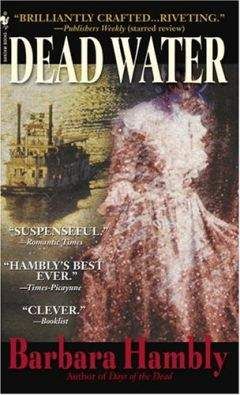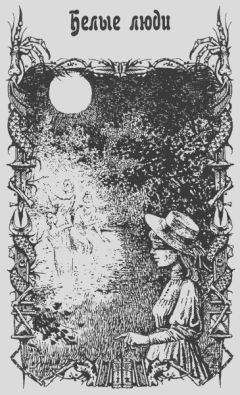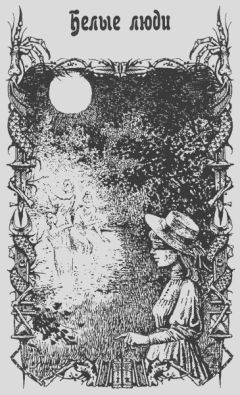Barbara Hambly - Dead water
На сайте mybooks.club вы можете бесплатно читать книги онлайн без регистрации, включая Barbara Hambly - Dead water. Жанр: Прочее издательство неизвестно,. Доступна полная версия книги с кратким содержанием для предварительного ознакомления, аннотацией (предисловием), рецензиями от других читателей и их экспертным мнением.
Кроме того, на сайте mybooks.club вы найдете множество новинок, которые стоит прочитать.

Barbara Hambly - Dead water краткое содержание
Dead water читать онлайн бесплатно
He knelt beside Molloy's body on the narrow bunk, turned the head gently, and withdrew a bullet-probe from his small medical kit. The pilot's closed eyes had begun to settle back into his head; blood and brain matter leaking from the wound had soaked the pillow, and in spite of the closed door the room was droning with flies. January inserted first the probe, then a pair of long-nosed bullet forceps into the channel cut by the bullet, which had cracked the skull on the other side.
Davis, after a rapid search of Molloy's portmanteau and the few drawers in the tiny dresser, came over to January's side, looking down over his shoulder as he withdrew the bullet from the wound. “That's no pistol-ball,” he said at once. “I loaded those pistols. That ball wouldn't have gone down the barrel.”
“I'm glad to hear you say it, sir.” January dropped the bullet into the nearest vessel, in this case the saucer under an empty coffee-cup that had been on the cabin's single chair. “In fact, I didn't expect it to be. You can tell from the angle of the wound that it wasn't made from the front, but from about twenty degrees to Molloy's left—that is, from the little rise at the head of the chute. The only thing Hannibal had to do with Molloy's death was to unknowingly lure him out on the riverbank, where someone could take a clear shot at him . . . and blame the death on Hannibal.”
“Well . . . I'll be dipped,” murmured Colonel Davis. “Who would have done such a thing?”
“I can think of four, right off-hand.” January covered the dead man's face with the sheet, then went to the washstand and poured water to wash his hands and the probe and forceps. “Unfortunately, three of them were within sight of half a dozen people at the moment of the shooting . . . and the fourth, as far as I can figure out, had no way of knowing that Molloy would be on the bank, involved in a duel, at dawn today.” He fetched the bullet and washed it in the basin as well, then held it up.
It was a .45-caliber, the same as the Leman rifles handed out to the guards.
“Anything in the drawers, sir?” He remembered to modify his tone into one of humble inquiry.
Behind them the door rattled peremptorily. Mrs. Fischer demanded, “Open this immediately!” and Mrs. Tredgold and Miss Skippen chimed in as a sort of operatic chorus, mezzo, contralto, and soprano.
Davis shook his head.
“In the portmanteau? A letter? Or tools of some kind—hammer, nails, pry-bar?”
“Nothing. Only a couple of empty tins.”
“Tins, sir?”
“Such as they sell candy in.” Davis held one up—English, gaudy reds and golds, flat and square and slightly larger than January's enormous palm.
“Open this door immediately!” shouted Mrs. Tredgold. If her tone of voice was any indication of her attitude in dealing with Mr. Lundy, January despaired of ever getting to Memphis.
“I will go to the purser's office,” Davis said, “and ascertain if any of the rifles is missing, or if one has been fired recently.”
“Missing is more likely,” said January as Davis unlocked the door and the two men stepped out, letting the three women push past them into the small cabin. “It could simply have been thrown in the chute afterward—it's what I'd do.” Behind them in the cabin three shrill voices rose, quarreling already over who had the right to be there.
“But if the man who pulled the trigger came off this boat,” said Davis worriedly, “how did he come back on? While you were ashore, Mr. Tredgold and Thucydides counted most assiduously to make sure that no one was inadvertently left behind. Every deck-hand and passenger is accounted for, even to the slaves who went ashore with Mr. Cain. And if the man who pulled the trigger didn't come off this boat, why would his accomplice on the vessel need to smuggle him a rifle? Surely such a man as that would have his own weapons? And why in any case would they wish to kill Mr. Molloy, who is, as far as we know, the only one who knew where Weems had hidden his loot . . . if indeed the loot exists at all?”
January shook his head, and glanced up to see Souter coming down the steps from the hurricane deck. Tredgold followed him: January caught a snatch of their speculation about where the nearest wood-yard was and whether the Silver Moon could make it there or would have to stop yet again for the deck-hands—and the hard-worked slaves—to cut enough trees to keep the fires going.
Down below, the half-submerged forest of snags and towheads closer to the bank was finally being left behind. So Lundy had apparently agreed to stay, when any other pilot would have stomped down to the Saloon and left poor old Tredgold at the wheel himself.
Any other pilot who didn't have such an overwhelming desire to be on the Silver Moon . . . To pilot the Silver Moon.
There's a pattern here somewhere, thought January as he walked along the promenade to Hannibal's room, the rifle-ball in his hand. At least, he thought, his friend would be grateful to learn that he hadn't killed a man, even a man he despised and who was trying to take his life.
Or he'd be grateful when he woke out of the opiated stupor into which he'd almost certainly drunk himself in reaction to the thought that he was a murderer.
Will all great Neptune's ocean
Wash this blood clean from my hand . . . ?
And anger burned up in him at the thought that someone would have used an innocent and morbidly sensitive soul like Hannibal as their cat's-paw.
The stateroom door stood open. Coming closer, even above the faint, terrible reek from Weems's closed room, he could smell vomit.
He sighed, not much surprised. Hannibal no longer got blazing drunk several times a week, and had nearly killed himself trying to get opium out of his system. January had encountered men who were able to cut down their drinking in the face of necessity, but had never found one who could break free of opium.
And even those who turned away from alcohol often turned back.
He'd been waiting to see if Hannibal was one of them.
Rose was kneeling beside the bed where Hannibal lay—Thucydides was just mopping up the floor with a towel. The fiddler looked ghastly, worse than any drunk January had ever seen, shut eyes sunken and lips gray as he gasped for breath. Horrified, January dropped down beside Rose and felt for the racing, thready pulse.
“Good God, how much did he drink?” How much could he have drunk, in the . . . what? An hour, at most, since he'd returned to the boat?
Rose glanced at him, her eyes warning—she reached into her pocket and took out her red bandanna, with which she wiped their friend's face.
January fell silent. Like the songs about wading in the bayou, a red bandanna had long been a signal of danger between them.
Only when Thucydides had left did she whisper, “About half an ounce, as far as I could tell . . .” She nodded to the flask of opium and sherry on the floor beside the bed, the only bottle in the room. “The door was locked—I had to get Thu to force it. He isn't drunk, Ben. And he doesn't have a fever, he's like ice. I think he was poisoned.”
NINETEEN
January dabbed some of the liquor from the flask onto his finger and tasted it, but the bitterness of the opium and the heavy sweet of Malaga sherry drowned any hint of whatever had been added to the brew. Still, he had no doubt that the poison, whatever it was, had been put into the flask. Taking a drink from it would have been the first thing Hannibal did upon entering the room.
And the second thing would have been to lock the door against Theodora Skippen, who was apparently determined—not to say desperate—to find a new protector for herself. No wonder Rose had had to get Thucydides to open it.
Since Hannibal seemed to have vomited everything in him, there seemed little point in a further purge. “See if you can get some water and a little salt beef from the galley,” January said, and dug in his medical kit for a paper twist of dried foxglove. Hannibal's hands and face were icy, but sweat stood out on his forehead and cheeks. When January lifted back his eyelids, he found the pupils dilated rather than constricted, as opium would have left them. His breathing was sunken to a thread—January watched closely the rise and fall of his chest, but though he seemed deep in a stupor he was having no obvious trouble or spasms.
“Why on earth would anyone have wanted to poison Hannibal?” demanded Rose, returning with a pitcher.
January mixed the tiniest pinch of foxglove with the water, and gently raised his friend and spooned some of it into his mouth. Hannibal swallowed, but didn't open his eyes.
“For exactly the reason we thought he—or she—had provoked the duel,” replied January grimly. “To get us off the boat. To get me off the boat . . . since, if I'm supposed to be Hannibal's slave, I must remain in Mayersville with him even if I didn't do so out of sheer humanity. If he died—”
Rose's eyes widened and filled with tears, and January shook his head reassuringly.
“His heartbeat seems to be steadying. And his breathing isn't weakening, so I suspect our poisoner miscalculated the dose. But if he had died, I'd be held by the local authorities pending arrival of next of kin. . . .”
“Or Gleet would produce a bill of sale and a story about how Hannibal signed you over to him to pay a gambling debt.” Rose's voice had an edge like chipped flint.
January raised his eyebrows in agreement, but said nothing for a time. For a long while the only sounds in the room were the droning of the flies—which infested this side of the boat—and the dull throb of the engine and the splashing of the paddle as the Silver Moon picked up speed, and the slow, sobbing whisper of Hannibal's breath.
“Yet it was Molloy they killed.” Rose picked up the rifle-bullet January had laid on the dresser and turned it over in her fingers. “They could have shot Hannibal at the same time. It is ‘they,' isn't it? Not ‘he or she'?”
“I think so. And the more I look at it, the less I'm inclined to believe that Molloy's death has anything to do with Weems's theft of money from the Bank of Louisiana.”
“You mean if Weems was blackmailing Cain—and had a letter or whatever it was in his stateroom that Molloy later took—he could have had something that implicated someone else on board? Mr. Lundy, for instance? Except we know where Lundy was when Molloy was shot as well.” Rose edged around January and began to pull off Hannibal's boots.
“I'll get that,” January offered, making to put down the medicine, but Rose shook her head,
“I'm no good with nursing, and I've had plenty of practice at yanking off Hannibal's boots.”
January grimaced agreement and ran an affectionate hand along his unconscious friend's arm. “I'm afraid most of his friends have,” he said. Rose looked exhausted, and no wonder, thought January. The night of stress and fear for her friend had been followed by the terrible shock of finding him still in peril . . . and there was still the decision looming of what they'd do when they reached Mayersville and the sheriff took January and Hannibal into custody.
A decision, thought January, glancing at the brightening daylight through the louver-slits of the door, that he—and she—would have to make probably within the hour.
“You don't think it was Queen Régine who poisoned him, do you?” she asked. “You said there were poisons in the bundle we found. If he'd seen her accidentally, for instance . . .”
“If Queen Régine wanted to poison anyone,” said January, “it would be me. . . . And I've been very careful not to eat or drink anything that's stood unwatched in this stateroom. And Queen Régine knows perfectly well that I know—and therefore, that you and Hannibal know—that she's on this boat, and nobody's been able to see her yet, except one glimpse of a skirt. If that was her. If she'd wanted to poison Hannibal, for whatever reason, he'd be dead now.”
“I suppose so.” Rose sank down onto the bed, rubbing her forehead. “But even if someone got off the boat under cover of darkness, to hide in the trees—which could have been done fairly easily—I still don't see how they could have gotten back on after the duel, when it was daylight. We watched everyone go over and come back: Gleet came back, Cain and his slaves went over, and Cain was with the slaves the whole time. They came back with Molloy's body, then later a deck-hand rowed over and got you.”
“Yes.” January came around behind her and laid his big hands on her shoulders—the muscles of her neck felt like wood under his fingers. “Cain and his slaves. There are unanswered questions concerning Cain and his slaves on the night of Weems's death, too, aren't there?”
Rose opened her mouth to say something, then closed it. Then she said, “Cain . . . is using his slaves as agents? That's terribly risky, isn't it? He's a slave-dealer. . . .”
“He says he's a slave-dealer,” said January softly. “But we've been on this boat for over a week and I have yet to see him even try to sell a single slave.”
Outside, the pilot-house bell clanged as the Silver Moon approached the landing of Brock's Wood-Yard. Souter's voice trumpeted orders to the deck-hands to cast lines and bring her in. A shadow darkened the doorway of the stateroom, and Quince said, “Much as I abhor intemperance of any variety, might I offer your master a sovereign remedy for the inevitable fruits of such behavior? In this particular instance I am inclined to hold him guiltless—it is clear to me that the quarrel was forced upon him by that . . . that abominable hussy, and Mr. Molloy got no more than he asked for.”
“That's very kind of you,” said January as Rose moved aside to let the young man into the already crowded stateroom. “As it happens, I suspect my master is ill rather than drunk. There was no liquor in the stateroom, and, as you can see, no smell of it.” He took the bottle proffered and sniffed the cork. “What's in it?”
“A distilled vegetable elixir known to the ancient sages of Persia and India,” replied Quince helpfully.
“Known to the Old Man of the Mountains, anyway,” remarked Rose, taking a sniff of the cork, but she spoke in Latin and January—who had also detected the unmistakable pong, not of the Old Man of the Mountains' legendary hashish but of more modern laudanum—carefully schooled his face not to laugh.
The vibration in the deck was easing as the engine stopped. Gleet yelled, “You bucks get that wood on deck fast as you can, hear?” and footfalls thudded dimly down below.
“As if one can smell anything,” added Quince, his handsome face set in a grimace, “over the stench of poor Weems. It is absolutely disgraceful that we were so long delayed in taking his body to Mayersville. I cannot think what state it will be in, to be returned to Philadelphia for burial. I have asked to be moved—it will serve Mr. Tredgold right if no one is able to occupy that chamber ever again. All Molloy's fault, and Tredgold's, for letting a pilot ride roughshod over him in that fashion. I have taken it on myself to write to Weems's family. . . .”
Похожие книги на "Dead water", Barbara Hambly
Barbara Hambly читать все книги автора по порядку
Barbara Hambly - все книги автора в одном месте читать по порядку полные версии на сайте онлайн библиотеки mybooks.club.




